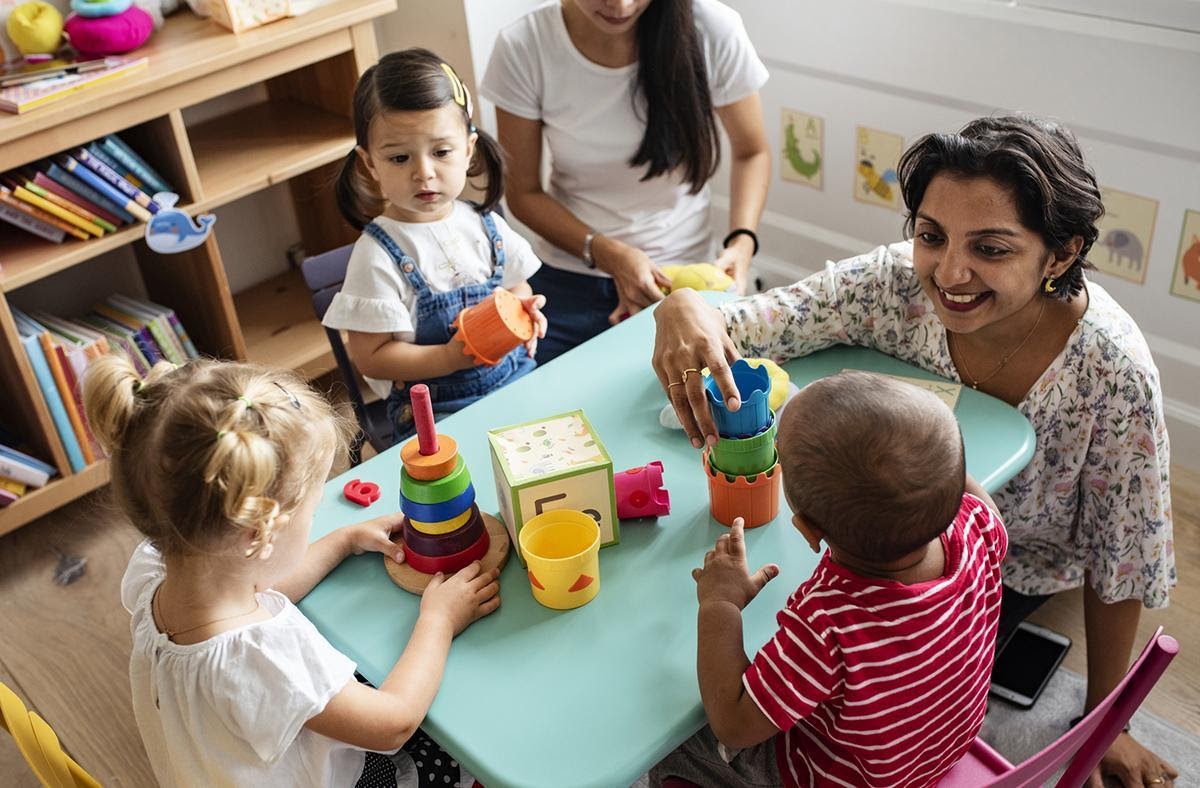Play is a natural part of childhood that offers several lifetime benefits. Furthermore, play therapy encourages creativity and positive decision-making, supports the expression of emotions, and facilitates communication and problem-solving skills.
Child development specialists work with children, parents and teachers to apply the principles of play therapy to help kids become capable and independent individuals. Their work is especially valuable in early childhood learning environments such as day care settings and pre-schools. Children might face any number of challenges in the early education phase, including separation problems, disruptive behavior, mood and anxiety disorders, and attention deficit/hyperactivity.
Ultimately, play therapy provides a positive and trustworthy experience for children during a critical time in their development. This article further explores the benefits of play therapy.
- Developmental benefits. Play has positive effects on the brain and a child’s ability to learn. It improves memory and the growth of the prefrontal (cerebral) cortex. The prefrontal cortex is a part of the brain located at the front of the frontal lobe. It is implicated in a variety of complex behaviors, including planning, and greatly contributes to personality development. Through play, children learn and build skills that are the foundation for reading, writing and math.
- Communication benefits. Play encourages communication and can help children develop their speech, language and listening skills. As they are exposed to more vocabulary, children will incorporate more words into play.
A child is more open to listening and exploring if a learning opportunity is turned into a game, story or something playful. Children often have themes to their play that are symbolic of their real-life experiences, a reason why it is considered to be an effective way to communicate issues that could be difficult to put into words.
- Therapeutic benefits. Play therapy gives children the opportunity to express aspects of their daily life, including stresses, anxiety, school difficulties and family conflicts. It can promote healing from traumatic events. In fact, a qualified therapist can use play to observe and gain insights into a child’s problems. Child development specialists help children cope with difficult emotions and find solutions to their inner conflicts.
- Creative benefits. Play sparks children’s imaginations, providing them with the freedom to explore possibilities and come up with unique and creative solutions to challenges. Imaginative play helps children learn about the world around them. Examples of creative and imaginative play include drawing, cutting and pasting, make-believe or pretend play. It even fosters cognitive and social development.
- Emotional benefits. In social play, children learn to follow norms and how to cultivate empathy and respect for the thoughts and feelings of others. This is essential for connecting with others and building healthy relationships. Play therapy also provides experiences that allow a child the freedom of independence and self-control, thus boosting self-esteem.
From the outside, play might seem like just fun and games, but it is more complex. Play therapy uses stories, games, art and other activities to help children identify feelings, learn to communicate better and develop prosocial behaviors. Children should receive the time and space to discover all the benefits of play.
Learn more about a Psychology Major in Child Development
Do you want to help kids grow into healthy, productive, and happy adults through various learning activities?
Carlow University’s Bachelor of Arts in Psychology program offers a concentration in Child Development designed for students who want to pursue careers in child development in which knowledge of children’s growth and development are necessary.
